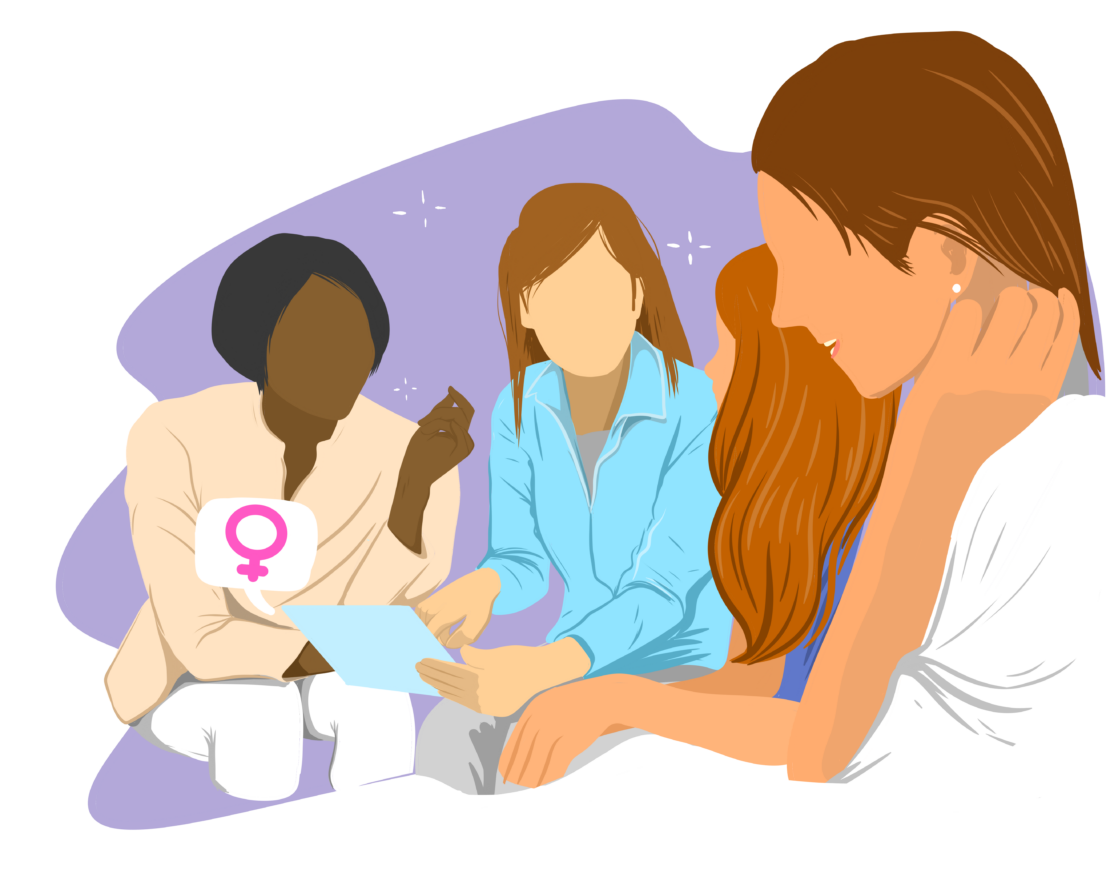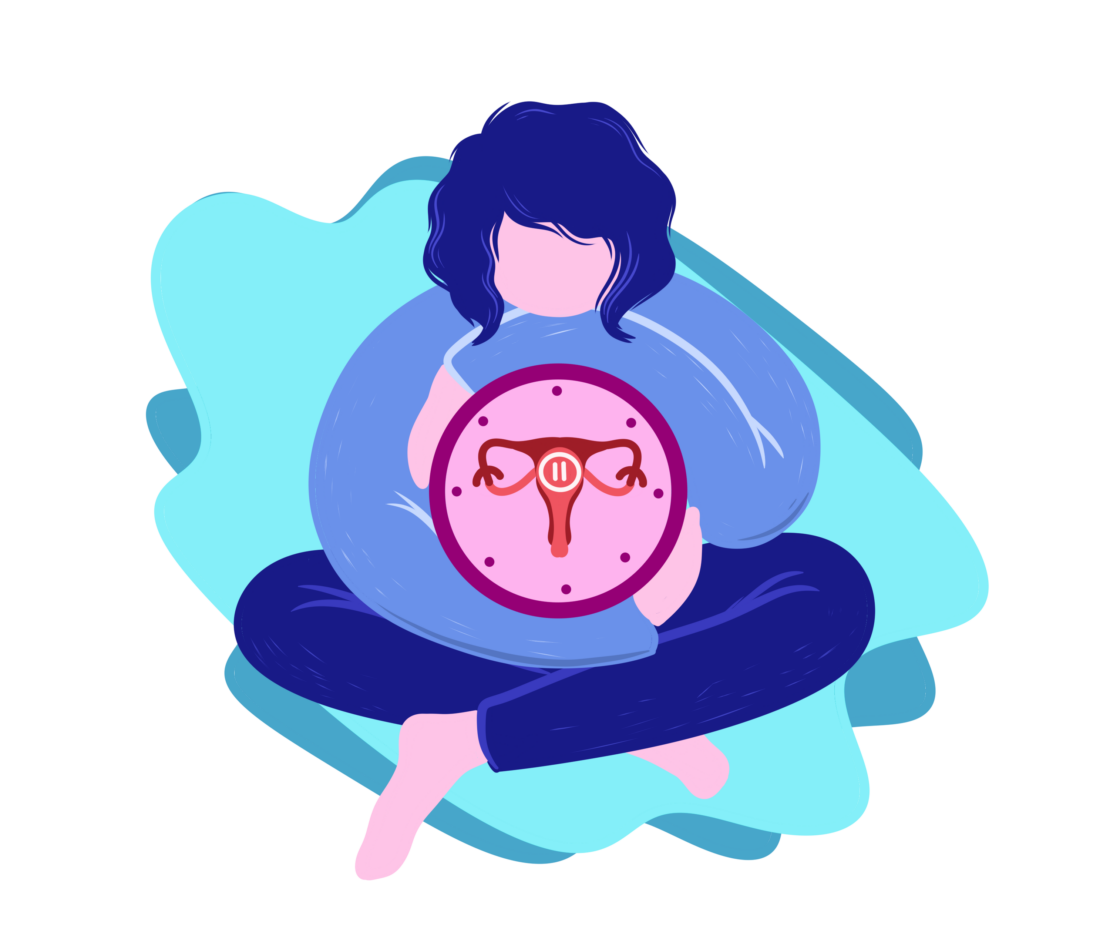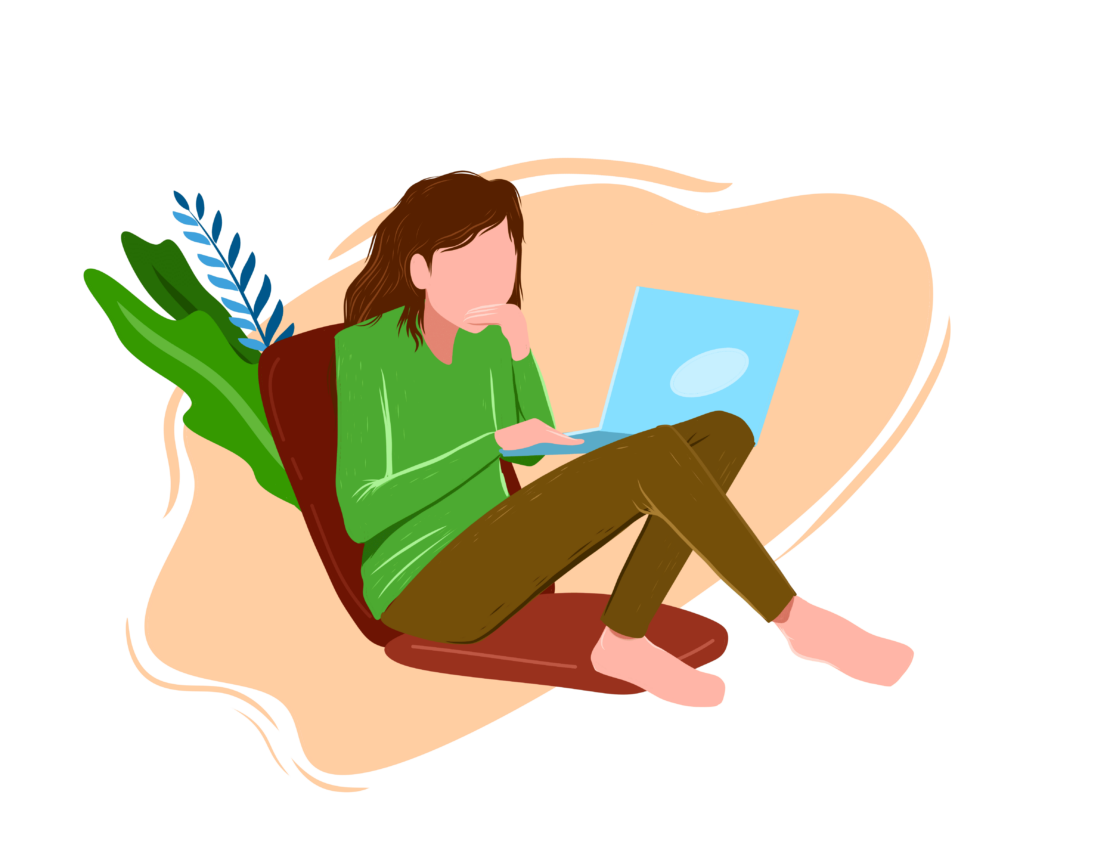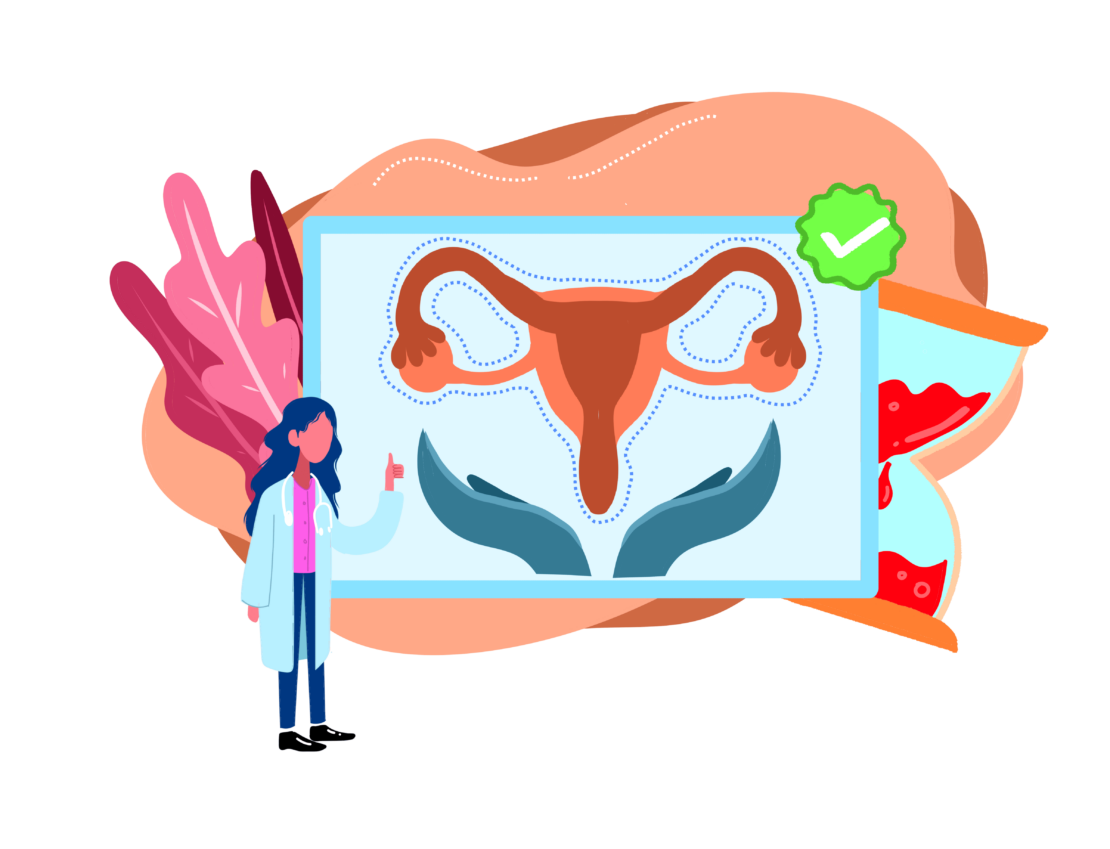Itchy skin during menopause is known clinically as “pruritus” and is caused by a reduction in oestrogen throughout the menopausal stages. As oestrogen levels fall, so does collagen formation, which is essential for skin health.
Women going through menopause stages frequently have itchy skin that is reported as feeling prickly, crawly, and like pins and needles. Treatments such as HRT can minimise the negative effects and provide relief from these symptoms of menopause.
Throughout this article we’ll cover this symptom in a lot more detail to help you understand the causes and solutions, and to ideally help you with what you may be experiencing.
What is Menopausal Itchy Skin?

Menopausal itchy skin, also known as “pruritus,” is a sensation of irritation and discomfort that causes an urge to scratch that is widely reported by women going through menopause.
Pruritus is the primary skin concern in women older than 65 years. The fluctuation in oestrogen levels can lead to dryness, reduced collagen production, and changes in the skin’s elasticity, which lead to the sensation of itchy skin.
Itchy skin during menopause can affect numerous parts of the body, such as the face, neck, chest, vagina, and limbs, making daily activities and sleep increasingly difficult for those who suffer from it. During this stage, it is often characterised by dryness, redness, flaking, and general sensitivity, and the skin is more vulnerable to irritants and normal wear and tear.
Direct repercussions include reduced barrier function, lower lipid levels, and diminished natural oils on the skin’s surface, laying the groundwork for understanding the deeper causes and mechanisms of this irritating condition. If you’re having this kind of symptom, reach out to us at OMC so we can help you with your problem.
What Causes Itchy Skin During Menopause?
Collagen, which is important for skin elasticity, also declines, resulting in sagging and wrinkles. Hormonal changes disturb the skin’s balance of oils and moisture, resulting in several skin concerns during menopause. As a result, itchy skin caused by dryness issues are more common among menopausal women who do not use hormone replacement therapy (HRT).
According to the research conducted by the Brazilian Ministry of Health which launched the Program for Integrated Women’s Health Care, oestrogens are necessary for skin hydration because they promote the structural proteins of skin, promote sebum production, increase water retention, and protect skin from excessive water loss.
Significant proportion of menopausal women, up to 50% or more, experience these skin-related discomforts, making it a common, yet frequently under-discussed, facet of menopausal health. As we look more into the effects of menopause on women’s health, it becomes clear that itchy skin is frequently associated with other menopausal symptoms such as hot flashes and night sweats, providing a more complete picture of the physiological changes women go through during this critical stage of life.

How Many Women
Experience Itchy Skin During Menopause?
During menopause, a considerable proportion of women have itchy skin, with estimates indicating that roughly 64% or more of women in this transitional period express varied degrees of skin pain. This prevalence is highlighted in a study conducted by Gleison V. Duarte, MD, PhD et.al., which underscored skin problems, including itchiness, as common but less discussed manifestations of menopause.
It becomes evident that the condition does not favour any particular body part when we talk more about itchy skin during menopause. This discomfort can affect a woman’s body in a number of places, including the face, neck, back, and extremities, suggesting that menopause has a significant impact on the skin’s general sensitivity and health.
Can HRT Stop Menopausal Itchy Skin Sensation?
In the study made by Brincat et al, they discovered a very strong relationship between skin collagen and skin thickness (measured radiologically) in both postmenopausal women on oestrogen replacement treatment and untreated postmenopausal women. It was found that after treatment for 6 months, elasticity and firmness of the skin had markedly improved and the wrinkle depth and pore sizes had decreased by 61 to 100%. Furthermore, skin hydration was enhanced, and wrinkle measurements using skin profilometry demonstrated considerable, although not highly significant, reductions in wrinkles.
What are the Treatments for Menopausal Itchy Skin?
Treating menopausal itchy skin involves a combination of lifestyle changes, skincare routines, and medical interventions. We at OMC may recommend topical creams or ointments to soothe the itchiness or suggest lifestyle modifications as well as specifically formulated skincare. The following are some possible treatments for menopausal itchy skin:
Lifestyle Change:
Making certain lifestyle changes is essential for reducing dry skin and itching, especially during menopause. Foods rich in vitamin E like almonds, avocados, hazelnuts, and pine nuts are great choices for maintaining skin health. Also staying hydrated by drinking plenty of water and supporting skin health with a diet rich in essential fatty acids and antioxidants.
Appropriate Skincare:
Adopting a gentle skincare routine, using mild cleansers and effective moisturisers while avoiding products that can strip the skin’s natural oils, is also beneficial. Refrain from using strong exfoliants and foaming cleansers as it leaves your skin dry. Instead, look for skincare products with hydrating agents like hyaluronic acid, ceramides, and ceramides.

Bathing:
Minimise bathing with hot water as it will make your skin flaky and dry. It also strips the natural oils from your skin which causes itchiness. exposure and utilising humidifiers can help prevent additional skin drying. If you’re used to hot baths, then you might have to adjust it to just lukewarm temperature and limit your time to not exceeding 15 minutes to not damage your skin and avoid stripping off the natural oil of your skin. Lastly, avoid using strong soaps that can remove the oils from your skin and instead use mild cleansers.
Medication:
Medications for itchy skin, especially during menopause, differs depending on the cause. Anti-Itch creams (topical corticosteroids) are commonly prescribed to reduce inflammation and itchiness. Antihistamines are also a good alternative for relieving itchiness. Lotions and creams which contain menthol ingredients could also help by having a cooling effect on those areas affected.
Topicals:
A moderate steroid cream, such hydrocortisone, is frequently advised for short-term use, usually for a few days, on small, inflamed areas. This lotion aids with itch relief and inflammation reduction. Non irritant moisturisers are available over the counter or you can purchase these after consulting with a specialist.
Therapies (HRT):
Hormone Replacement Therapy (HRT) can help treat menopausal itchy skin by addressing the hormonal imbalances that are producing the symptom. HRT may reduce dryness and enhance the general quality of the skin by restoring insufficient oestrogen levels. However, it is critical to consult with a healthcare expert because HRT is not suitable for everyone and carries certain risks. If you’re unsure whether to take HRT for your menopausal symptoms, feel free to speak with the team at OMC so our doctors and nurses at OMC can check your condition and give you a better recommendation.
Sun protection techniques such as using sunscreen, as well as apparel composed of skin-friendly natural fibres like cotton and silk are good choices to protect the skin’s natural protein structure and dark or bright coloured clothing can protect your skin from damaging UV radiation. These comprehensive techniques work in tandem to increase skin hydration and overall health.
What Causes Itchy Skin During Menopause?

A study from the Brazilian Ministry of Health indicated that skin disorders like itchy skin are often associated with night sweats, hyperhidrosis, and hot flashes which are all prevalent complaints among 35% to 50% of perimenopausal women and 30% to 80% of postmenopausal women. Menopausal hyperhidrosis is classed as secondary hyperhidrosis, with symptoms that may be relieved by HRT, implying that the reason is decreased oestrogen levels.
Similarly, sleep difficulties, another typical complaint during menopause, might develop as a result of itchy skin irritation, emphasising the interrelated nature of menopausal symptoms.
What are the Most Common Areas Affected by this Symptom?
While these methods can be useful, it’s also vital to keep track of how symptoms change during the day. Some women claim that itchiness worsens at night, presumably due to the lack of daily distractions and the natural decline in cortisol levels. Understanding these daily patterns is essential for managing menopausal itchy skin properly and may influence therapy time and technique.

Is There a Specific Time of the Day it Typically Occurs?

According to a study from Temple University’s Lewis Katz School of Medicine, sleep alters skin barrier function, which may lead to pruritus. At night, trans-epidermal water loss (TEWL), a measure of skin barrier integrity, increases. Increased water loss leads to impaired skin barrier function which allows substances called pruritogens to penetrate the skin and trigger the sensation of itch and a desire to scratch.
Moving forward, controlling menopausal skin itching necessitates identifying causes such as hormone changes, stress, environmental influences, and dietary or hydration choices. Understanding them is essential for good symptom management
What are the common triggers that can worsen skin itching during menopause?
External factors can also aggravate skin itching during menopause. Irritating soaps, detergents, and skincare products might aggravate the itching. Hot showers or baths with hot water can strip away natural oils from the skin, exacerbating the issue. Furthermore, certain textiles, such as wool or synthetic materials, might create friction and itching against sensitive skin. Skin irritation can be exacerbated by environmental variables such as dry air or severe temperatures.
Furthermore, itchy skin during menopause is frequently associated with a range of altered skin sensations also known as paresthesia which is characterised by having numbing, burning, prickly or crawly skin sensations implying a complex link between hormonal changes and neurological symptoms after menopause.

Is Pruritus related to other types of Menopausal Altered Skin Sensations?

Pruritus (itching) and paresthesia are linked by common sensory nerve pathways and frequently co-occur as a result of underlying health conditions, hormonal changes, or psychological stress. These nerve-related responses, often experienced as menopausal itchy skin, manifest in various ways including itching, prickly, crawly, burning, tingling, or ‘pins and needles’ sensations.
These symptoms, particularly prevalent in systemic or neurological diseases, are heightened during hormonal transitions such as menopause. Treatment techniques addressing these complex sensory connections aim to provide symptomatic relief by treating the underlying causes.
It’s noteworthy that the duration of menopausal itchy skin can vary, often persisting throughout the menopausal transition, which is a topic we’ll explore more in the following section.
How long does itchy skin associated with menopause typically last?
It is important for women experiencing itching during menopause to consult with their healthcare provider for an accurate diagnosis and appropriate treatment options. If symptoms get severe and unbearable, don’t hesitate to reach out to us at OMC and get some expert advice coming from doctors with decades of experience handling menopausal patients.

When Should You See a Doctor?

Although itching is a typical side effect of menopause, symptoms that are exceptionally severe, create serious discomfort, interfere with daily life or sleep, or are accompanied by rashes or other systemic symptoms require rapid attention.
We at OMC are here to help you manage these challenges and provide guidance geared directly to your needs. With us, you’ll avoid long lines and have instant access to a plethora of menopausal knowledge.
Contact us today to see how we may assist you with your symptoms.
